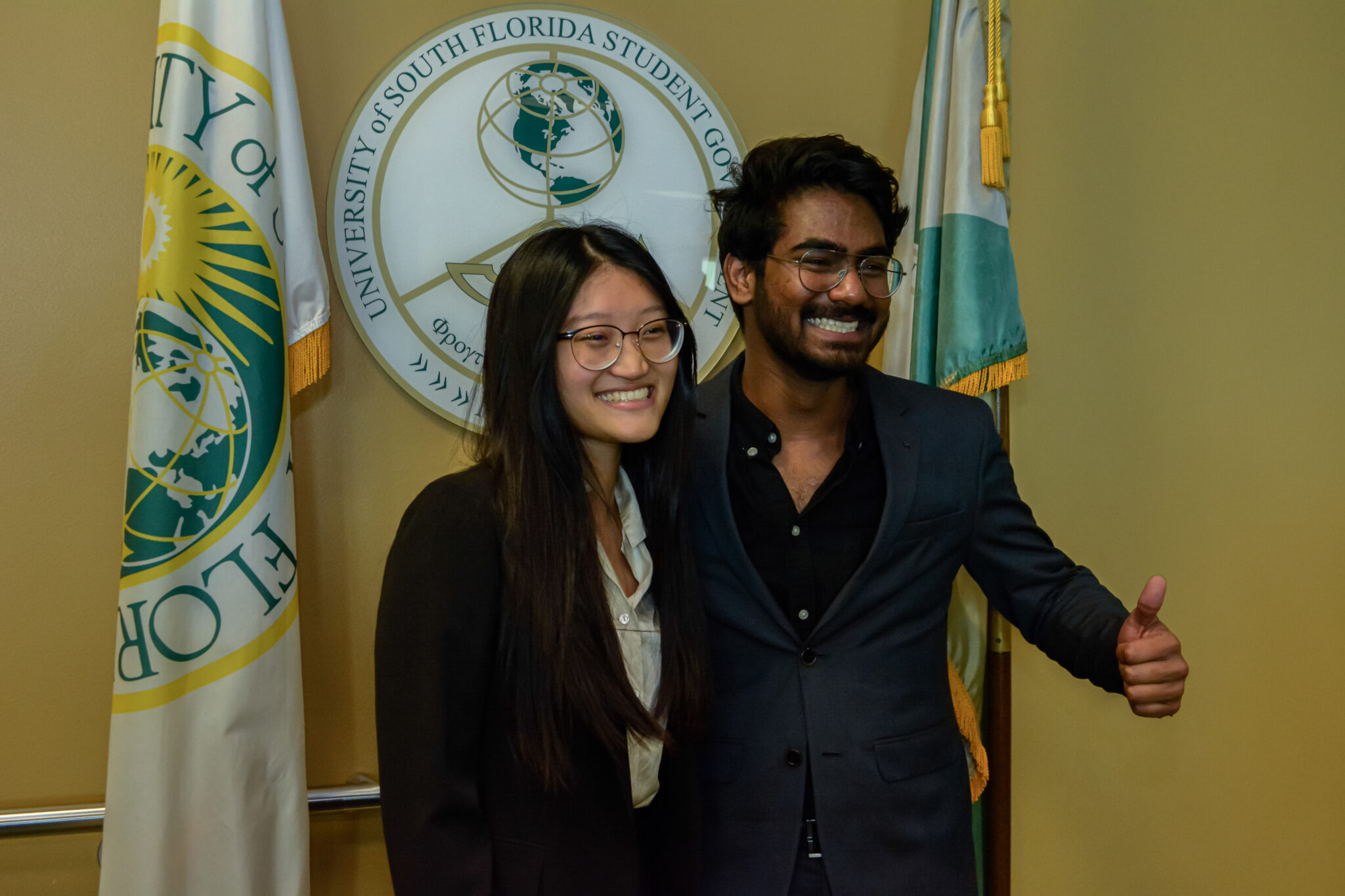Student Government’s composting partnership with Honors Community Garden halted

Student Government (SG) President Nithin Palyam and Vice President Amy Pham’s campaign effort to reduce food insecurity through a food composting partnership with local gardens has halted after a meeting with the Sustainability Department.
The composting initiative was heavily endorsed by the candidates while in debates before the spring 2022 election. Given Palyam’s telling of his own struggles with food insecurity, the reduction of food waste was at the top of the president’s and vice president’s environmental agenda, according to a 2022 Oracle article.
“We wanted to work with local gardens,” Pham said during a Nov. 23 interview with The Oracle. “The Honors College has a garden, so we wanted to see if we could work with them and provide them a table at the Bulls Market, giving them a bigger platform.”
Food composting is a natural way of recycling food and repurposing nutrients as soil. According to the United States Environmental Protection Agency (EPA), the aerobic process can quickly be done at home by setting aside a bin to dispose of compostable products and is a very efficient way of reducing trash while still addressing climate change.
With the quality of dining halls’ food waste in mind, composting wouldn’t be the immediate solution for the type of food served at the Hub, Argos and JP. Due to most of the food containing oil, dairy and meat, the ingredients in dishes would not be easily separated and properly disposed of, according to the EPA.
The prime material for composting is nitrogen-rich and carbon-rich products, such as vegetables, coffee grounds, eggshells, dry leaves and brown bags, according to the EPA. Pham said during her Nov. 23 interview with The Oracle that during her and Palyam’s meetings with USF’s Sustainability Department, they encountered issues with the practicality of composting on campus.
“We found some challenges with implementing the food composting initiative for students,” Pham said. “There are a couple of things required for composting that are maybe unfeasible in a year’s work.”
Instead, SG has focused its efforts on a recycling plan by aiming to promote accessibility around campus through expanding and monitoring the university’s partnership with Coca-Cola, or the “World Without Waste” recycling initiative, according to Pham.
Six “reverse” vending machines located around USF Tampa and St. Pete campuses can accept up to 900 plastic bottles and aluminum cans that are recycled every two weeks, according to a 2022 Oracle article. For every bottle and can donated toward recycling, the article stated that the USF Food Pantry receives 5 cents for food donations.
However, Pham said the biggest challenge with the recycling machines on both campuses is that students are still confused about how to locate them.
“We have found that a lot of people don’t know where they are, and a lot of people believe you can only put Coke products in it,” Pham said.
Tampa students can access the machines from four locations, or Cooper Hall, The Hub, the Marshall Student Center and Juniper-Poplar Hall. Students at the St. Pete campus are also able to locate machines at the University Student Center and Bayboro/Davis Breezeway.






